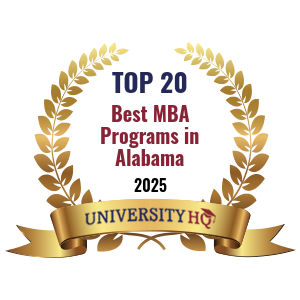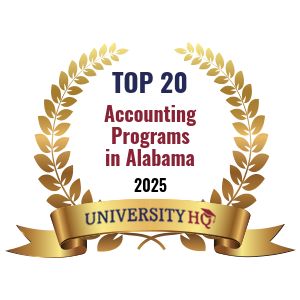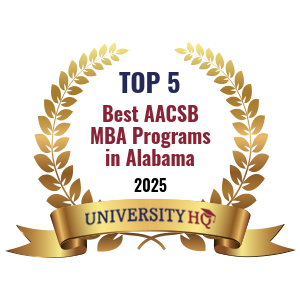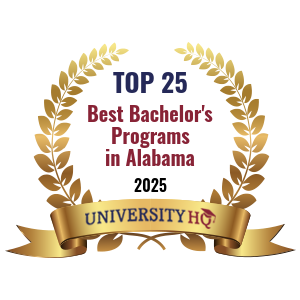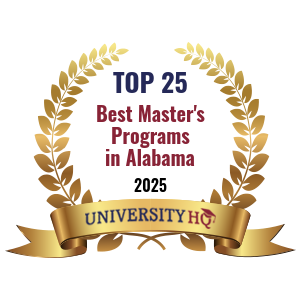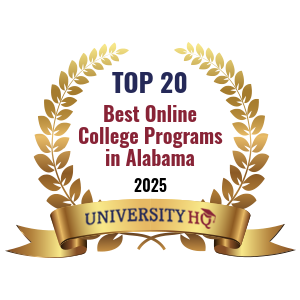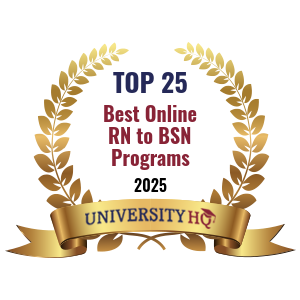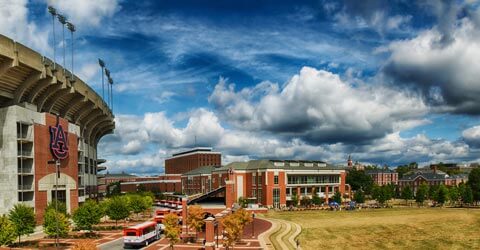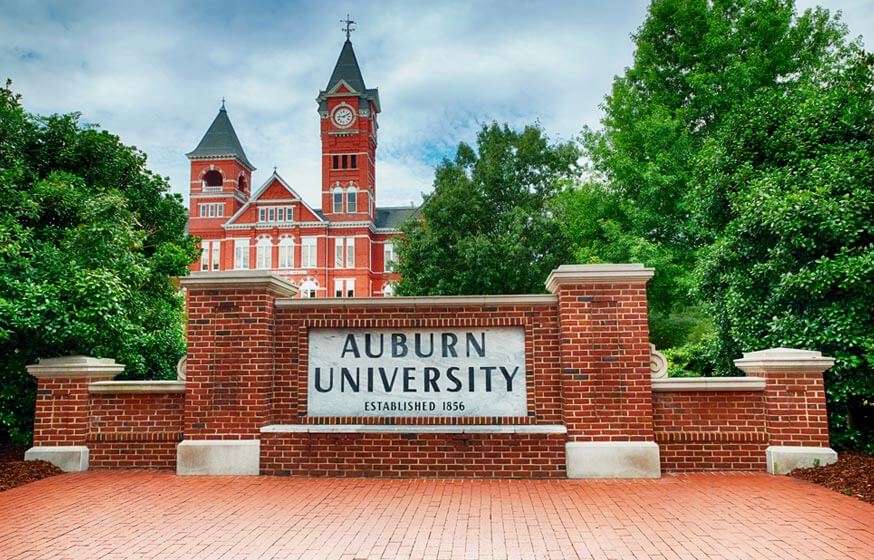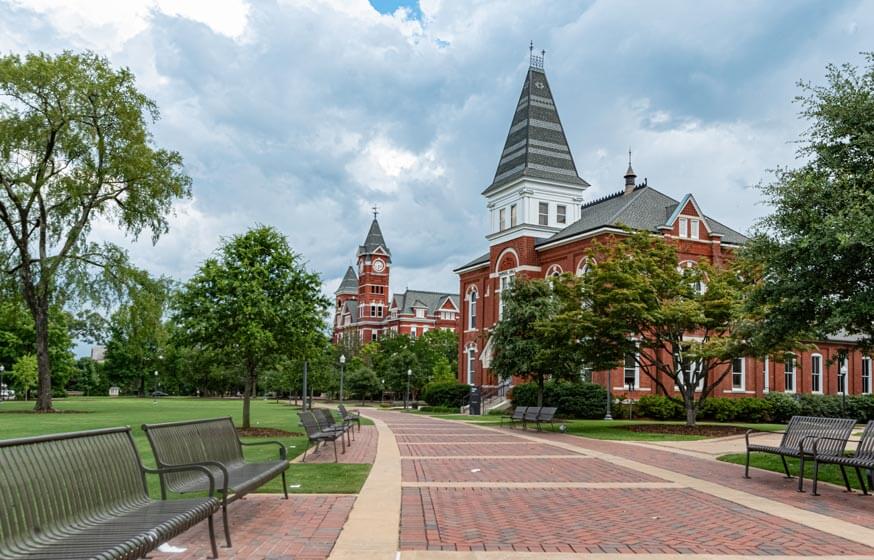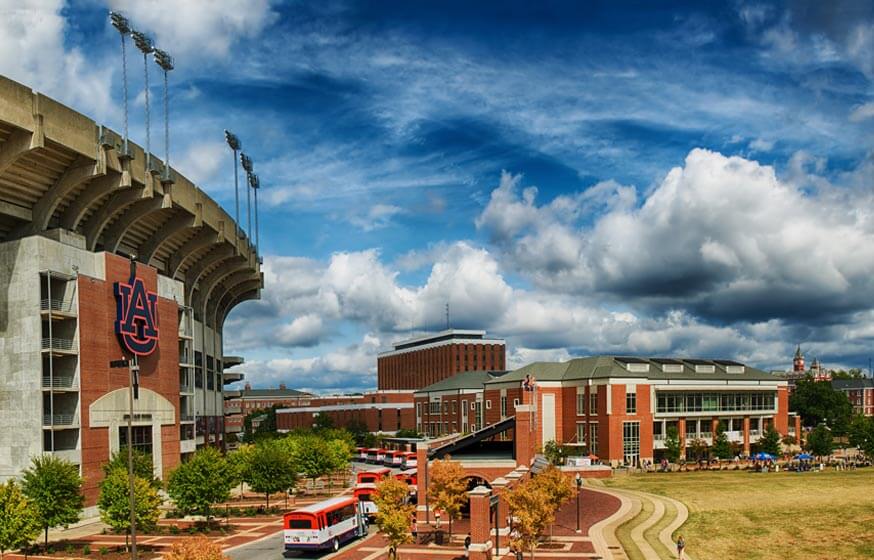Get Matched With Online Colleges
Auburn University is one of Alabama's best academic institutions. Founded in 1856, the institution became the South's first land-grant college in 1872. With 24,628 undergraduate and 4,706 graduate students, Auburn is a large institution. With 14 colleges and schools that each encompass a wide range of degrees and programs, Auburn students never lack for an outlet for curiosity and research.
Search All Programs
Overview of Auburn University
Whether students choose a bachelor's degree in the Harbert College of Business, the College of Education, or the College of Liberal arts, Auburn's high standards for academic excellence ensure that they all receive the best college education possible.
While Auburn is world-famous for its football and other varsity sports, the remaining student body is never found lacking an opportunity to exercise, compete, or explore an extra-curricular interest. Campus life includes Greek organizations, club sports, intramural activities, and a full range of outdoor activities for any interest. Students can thus find fellowship and fun whether in the aquatic center, on the climbing wall, or playing ultimate frisbee, among many other opportunities for fun and recreation. If that weren't enough, Auburn's campus hosts over 570 student organizations.
General Information
| School Type | Public |
|---|---|
| Campus Setting | City: Small |
| Campus Housing | Yes |
| Student Faculty Ratio | 19:1 |
| Graduation Rate | 78% |
| Year Founded | 1856 |
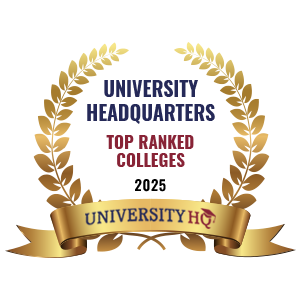
Student Enrollment
Total Students30,440
24,628
5,812
Undergraduate Student
Male 12,807
Female 11,821
Graduate Student
Male 3,022
Female 2,790
Explore Map
Top Rankings For Auburn University
Admissions
APPLICATIONS20,742
ACCEPTANCE15,557
Acceptance Rate75%
Enrollment 4,823
| Admissions | |
|---|---|
| Application Fee | $50 |
| High School GPA | Required |
| High School Rank | Recommended |
| High School Transcripts | Required |
| College Prep Courses | Required |
| Recommendations | Recommended |
| SAT/ACT | Required |
| TOEFL (Test of English as a Foreign Language) | Required |
| Application Deadline | January 15 |
| Common Application Accepted | No |
Tuition Cost & Financial Aid
Auburn is a public university which focuses on educating students from Alabama, who enjoy lower tuition costs. The overall net price of an Auburn education is just under $24,000 per year when both in-state and out-of-state students are counted. Lower income students see their net cost go a bit lower, to $18,000 while families that earn over $110,000 face net costs of $27,000.
These net costs are down from the official total cost which is $32,000 for in-state students and $52,000 for out-of-state scholars. Since the cost of living in the town of Auburn is quite low, there is little or no difference in cost between students that live on campus versus those who find apartments. Costs are otherwise defrayed by Pell Grants, other federal grants, student loans, and a myriad of other institutional grants and scholarships.
In fact, students who receive Pell Grants get an average of $4,800 and federal grant recipients receive around $5,000. State/local or other government scholarships help out with another $4,000 and institutional grants and scholarships pitch in an average of $8,500. Students can still lower their costs by competing for any other scholarships they find.
| Average net price | 2017-2018 |
|---|---|
| Net Price | $23,205 |
| Average Total Aid | $9,634 |
| Students Receiving Financial Aid | 75% |
| Room & Board | $13,600 |
Sticker Price
- Tuition In-State - $11,492
- Tuition Out-of-State - $31,124
- Books and Supplies - $1,200
- Room & Board - $13,600
- Other - $5,904
Academics
Auburn is one of the best academic institutions in Alabama, if not the South. Its reputation for scholarly research and outstanding curriculum is rivaled only by its athletic teams, which thrill students every season. Indeed, Auburn University's academic prowess is borne out by its retention rates, graduation numbers, and student-to-faculty ratio.
The retention rate is a number that describes the number of first-year students who return to campus for a second year. It's assumed that students return who are pleased with the quality of the school's academics, resources, and overall campus life. In fact, Auburn boasts a retention rate of 90% for full-time students returning, while 75% of its part-time students return for a second year.
This high first-year student retention is matched by the graduation rate, which is 79%. Given that 13% transfer to other institutions, including the campus in Montgomery, Auburn does a terrific job of fostering academic ambition and strength. This is, in part, due to the favorable student-to-faculty ratio.
Though Auburn has nearly 25,000 students, class sizes remain at a reasonable size. In fact, the University boasts a student-to-faculty ratio of 19 to 1. At Auburn, students are able to access their instructors for questions, comments, and overall academic enrichment.
Retention
Rate
4 year
Graduation
Rate
6 year
Graduation
Rate
Student Population Total
Student Population 30,440
24,628
5,812
Most Popular Programs & Majors
(# of Diplomas Awarded by Subject)
| All Business Majors | 1,189 Total Graduates / 23% |
|---|---|
| Business Administration and Management, General | 263 Graduates |
| Finance, General | 259 Graduates |
| Marketing/Marketing Management, General | 218 Graduates |
| Accounting | 177 Graduates |
| Logistics, Materials, and Supply Chain Management | 16 Graduates |
| All Engineering Majors | 966 Total Graduates / 19% |
| Mechanical Engineering | 208 Graduates |
| Computer Engineering, General | 122 Graduates |
| Civil Engineering, General | 118 Graduates |
| Industrial Engineering | 108 Graduates |
| Architectural Engineering | 106 Graduates |
| All Biological & Biomedical Majors | 619 Total Graduates / 12% |
| Biomedical Sciences, General | 305 Graduates |
| Exercise Physiology | 215 Graduates |
| Biology/Biological Sciences, General | 45 Graduates |
| Medical Microbiology and Bacteriology | 40 Graduates |
| Marine Biology and Biological Oceanography | 13 Graduates |
| Health Professions and Related Programs | 303 Total Graduates / 6% |
| Registered Nursing/Registered Nurse | 178 Graduates |
| Audiology/Audiologist and Speech-Language Pathology/Pathologist | 66 Graduates |
| Health/Health Care Administration/Management | 41 Graduates |
| Clinical/Medical Laboratory Science and Allied Professions, Other | 11 Graduates |
| Clinical Laboratory Science/Medical Technology/Technologist | 7 Graduates |
| Communication, Journalism, and Related Programs | 287 Total Graduates / 5% |
| Communication and Media Studies, Other | 106 Graduates |
| Public Relations/Image Management | 81 Graduates |
| Journalism | 60 Graduates |
| Mass Communication/Media Studies | 40 Graduates |
| All Other Diplomas | 36% |
Outcome & Salary
After graduation, Auburn students go on to do great things for the state of Alabama, and the world at large. They also do well for themselves. Auburn's highest earning bachelor's degree recipients enter the working world earning over $73,000 before bonuses and other compensation. At the lower end of the top ten highest earning degrees, computer and information sciences degree holders earn a commendable $52,000 before other compensation is factored in. The remaining top earners represent degrees in engineering and nursing.
| Graduates Salary | |
|---|---|
| College Grads Early Career Salary | $54,400 |
| College Grads Average Salary | $68,000 |
| College Grads Mid Career Salary | $104,500 |
| Return on Investment (ROI) | |
|---|---|
| 10 Year Salary Earnings Potential | $680,000 |
| 20 Year Salary Earnings Potential | $1,725,000 |
| Cost of Education (Net Price) 4 Year | $92,820 |
| 10 Year Projected ROI | $587,180 |
| 20 Year Projected ROI | $1,632,180 |
| No College Education Salary Comparison | |
|---|---|
| National Average Salary | $38,792 |
| 10 Year Projected Income | $387,920 |
| 20 Year Projected Income | $775,840 |
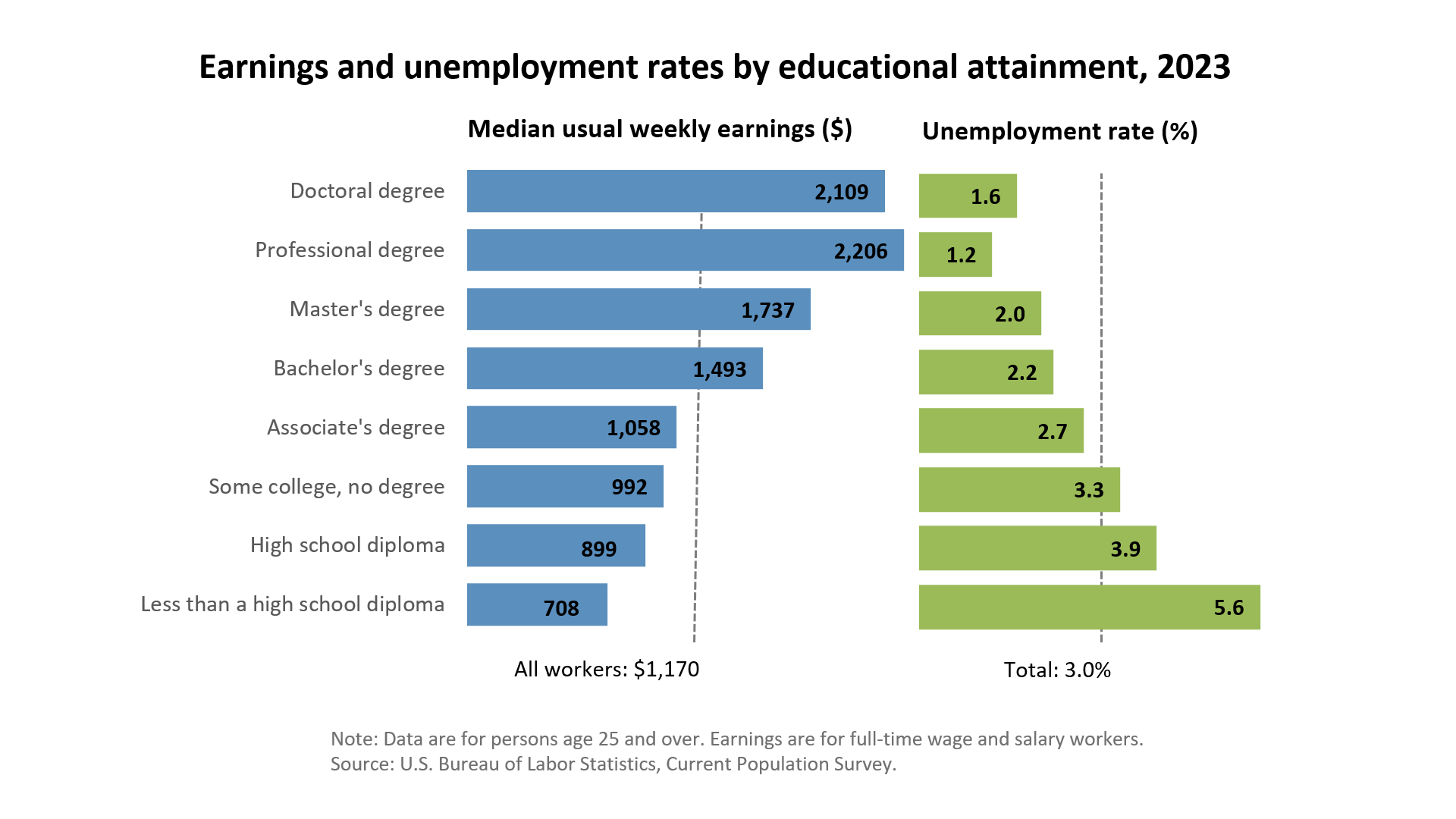
Related Top College Resources

